With literally millions of apps now available via the Apple App Store and Google Play, the rise of mobile devices is driving an ever-growing demand for mobile apps of all kinds.
Mobile commerce and sales are growing exponentially. Building a successful application is directly related to the quality of your concept and to the type of service or product you offer, your audience, platforms, and your marketing strategy.
In building an app, there are different variables, features, and development processes to consider as well as associated costs. For an entrepreneur, the infamous scenario of “Wow, that would be an awesome app! I’m going to call a mobile app developer” has been the stopping point for many app ideas. You may be planning to build the app yourself but most professionally developed applications require project managers, designers, developers, testers, and marketing specialists. For a business, there is much more to consider before attempting to build a mobile app, such as meeting your user’s needs and your company’s return on investment.
So, here are four things you need to consider when thinking of building an app.
1: Find your overall purpose. Make sure there is a need.
What is your goal? Without a purpose, your app will fail. Period. Strip down your app idea to its basic core and ask, “What is the intention of this app?” Forget the cool widgets and other things your app can do and really find that purpose.
Are you trying to entertain people with a fun game? Are you trying to connect people with a social network? Make sure that whatever your application is, a real problem is addressed, providing a quality solution for that problem.
There are plenty of ways to fail, but with a good strategy and best-practice UX/UI design, it is possible to create productivity tools that perform with purpose. Many companies have lost time and money building apps they didn’t need or the wrong type for their business. It is imperative to understand your demographic and their needs as well as the type of devices being used before app construction.
Identify your needs and establish what must be accomplished with your app. Understanding your target users, their goals and requirements, and preferred platforms will provide invaluable insight. Having a goal in mind will mold expectations, organize content, substantiate purpose, and measure success.
2: Do your research. Choose the right process.
Research is paramount. Explore the possibilities at hand, considering every aspect before beginning to build your app.
Believe it or not, there is a good chance that your app idea is available somewhere on the app store already. Seek out and download similar apps and explore their functionality. Think about ways of improving the capabilities of your app. Your app must possess certain qualities and/or solve certain problems better than your competitor’s app. If your app doesn’t accomplish this task, then why build it?
Go straight to the source to delve into how your app can help end-users. Build a user testing focus group. Ask a few dozen people around you if your idea would benefit their lives. If more than half of them say no, then you probably should go back to the drawing board. Discussing ideas daily with your focus group will aid the process of discovery, providing value far beyond the initial discovery phase.
Understand the process of creating an app. You need to know the industry before diving into it. Find out what other entrepreneurs have said about the mobile app process and learn from them. Arm yourself with the right information, such as user studies, expert opinions, business viability and technical feasibility studies. This body of data can be weighed to achieve the best balance between user-centric solutions and business-value gains.
For your business, determining what type of app works with your company and what processes your app automates is crucial. A mobile app can deliver ROI such as productivity improvements and higher conversion rates, but won’t function if employees and/or the public are unwilling to use it. An effective app takes into consideration the needs of its users in their environment.
In addition, integrating your app with all your existing business systems streamlines processes while promoting real-time communication, reducing data errors and maintenance difficulties affecting your company’s ROI.
3: Time, and money
Whether an entrepreneurial venture or as a business, plan on devoting the time necessary to develop your idea into a reality. For your application to be successful, you need to be 110 percent committed, or it won’t deliver.
A heavy variable in the success of mobile applications is funding. Are you financing everything yourself? Do you have enough money/investors to really bring your app to life? The best way to find out how much your app will cost is to obtain price quotes from several development companies, then compare.
Make sure the work you need completed is both possible and accountable during the scope of work you are paying for, otherwise, you may end up with a much larger bill. Discuss the project with your technology provider and make sure you understand the entire process.
Decide which platforms to target according to your budget and project requirements. Consider your application features, monetization strategy, brand, and audience. Spending time to study every element and factor relevant to the development of your app may be somewhat overwhelming, but if you exercise due diligence and are prepared, then you can save a lot of time and money.
4: What is the future of your app?
In the first step, you broke down your app idea into basic principles. That is what your first version of the app should be. Many people want to launch their app with every specification and it ends up not delivering. This is usually because of poor planning, questionable implementation and faulty testing protocols.
Moving forward, get feedback from that first version and then produce updates improving the user-experience, adding extra features, and fixing bugs in order to keep your application competitive and at the highest quality. For business, focus on updates which work to refine processes while adding value for employees and users.
Having these four points in mind when creating your entrepreneurial or business app will help you reach your objectives, whether they be sales, entertainment or social engagement driven goals, creating an app with purpose, adding value for the user.
If you have feedback, please let us know in the comment section. If you have questions about building a mobile app or having us conduct the market research for your idea, contact us here.

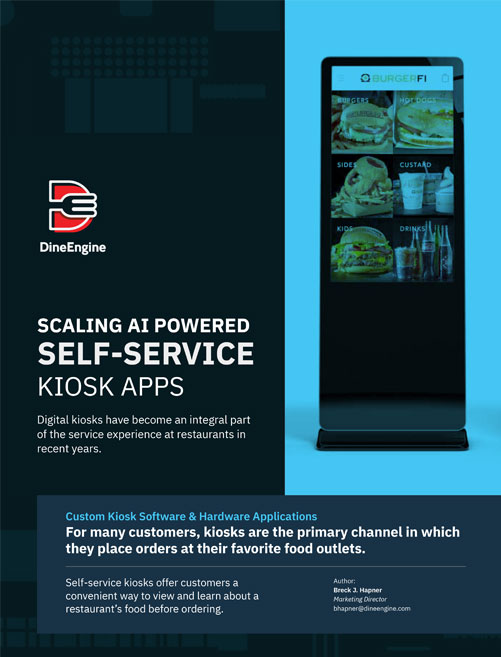
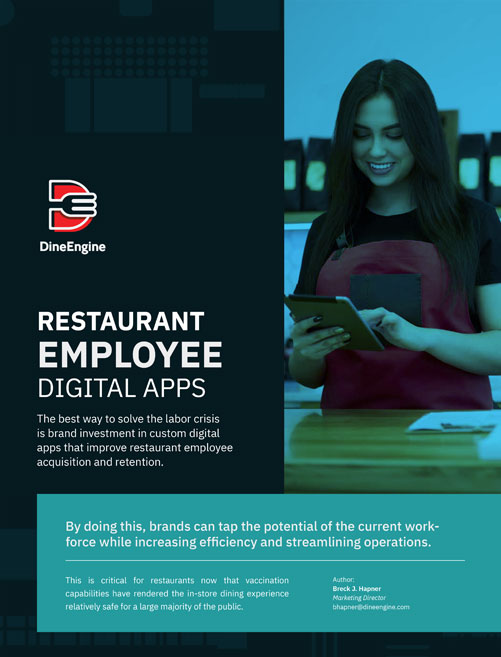
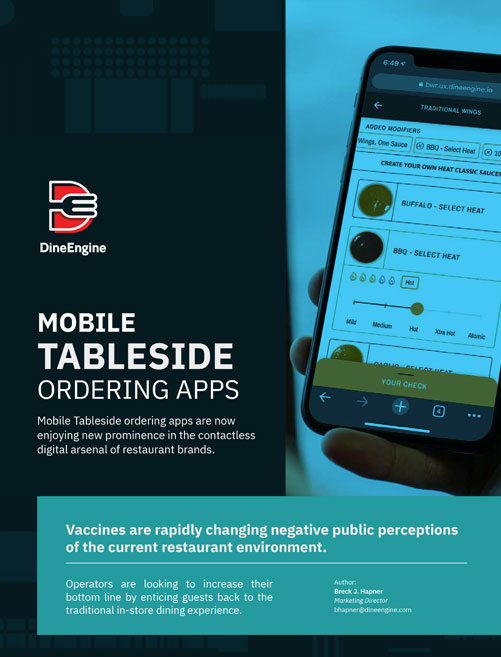
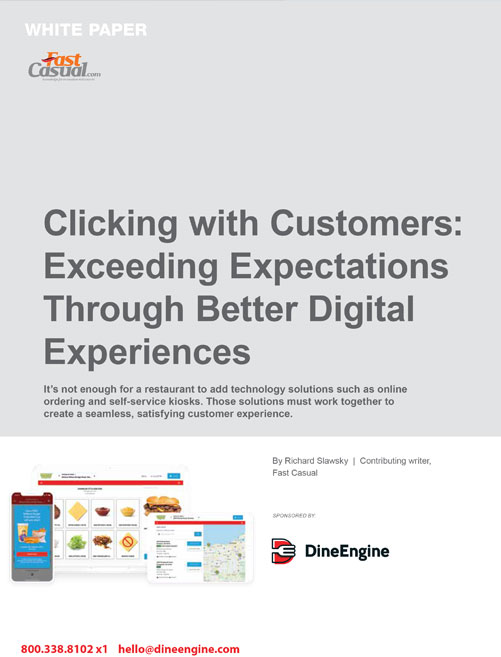
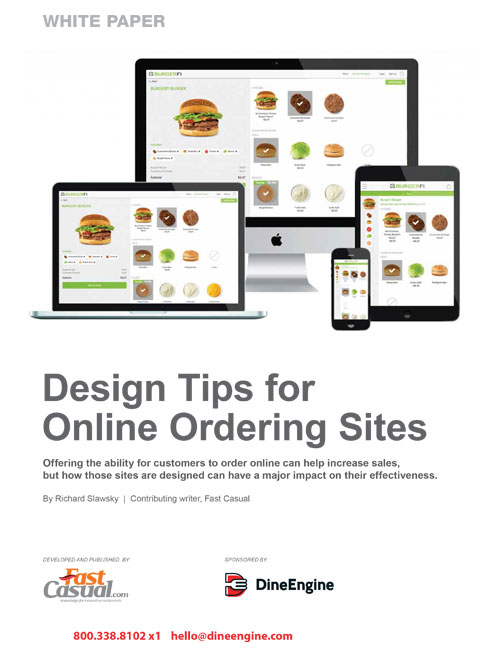
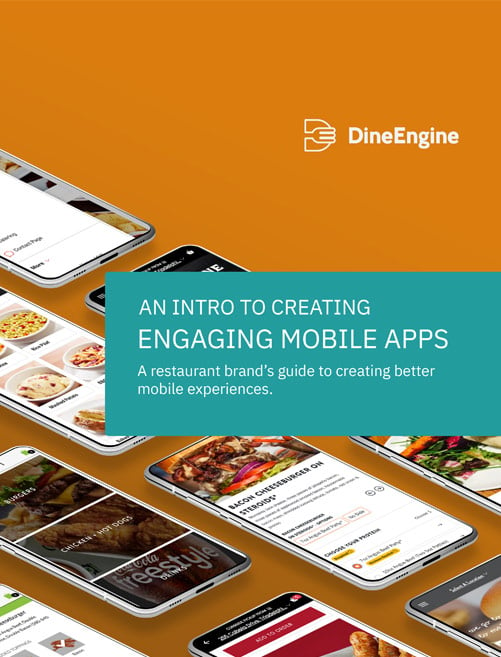





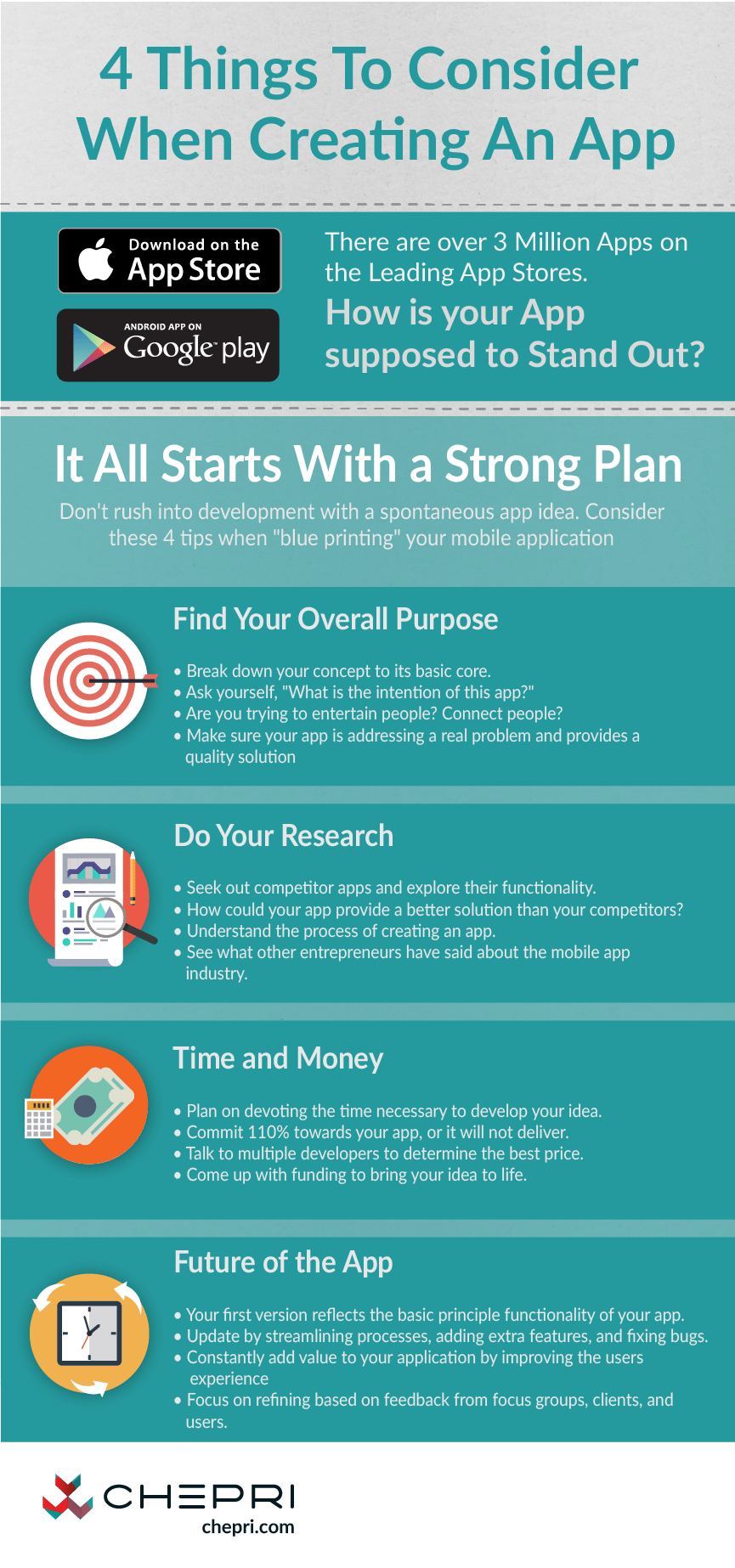













0 Comments